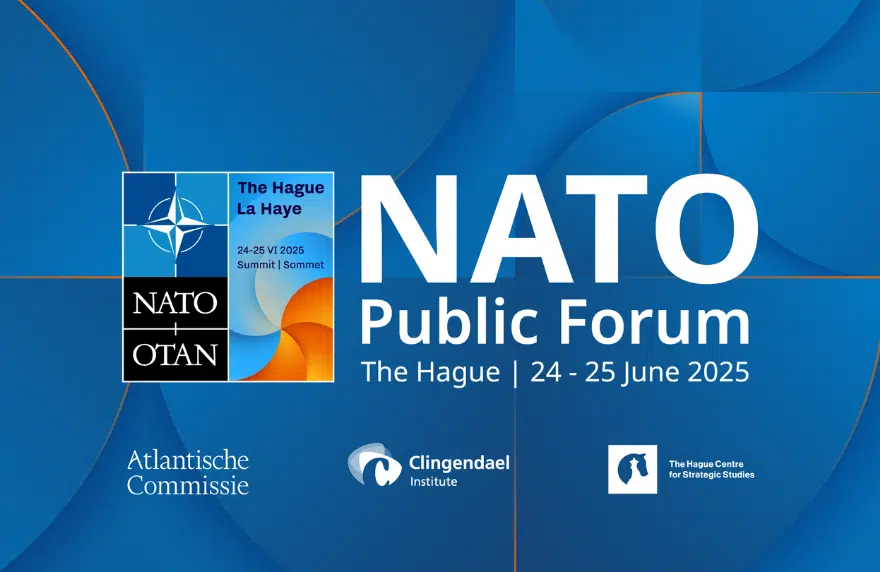Russia’s illegal and unjustified war in Ukraine will define the way the Netherlands and NATO operate in the years and decades to come. NATO will need to adapt by strengthening its defence and deterrence posture, while continuing to support Ukraine. The Netherlands is punching above its weight in this effort. This was the central message of a three-day visit of a NATO Parliamentary Assembly delegation to The Hague.
During the visit, parliamentarians received a series of briefings on the Dutch perspective regarding the future of NATO and the implications of Russia’s renewed invasion of Ukraine on Euro-Atlantic security. “With Russia’s invasion, the Alliance has entered an era of persistent confrontation”, said Tim Sweijs, the Director of Research at the Hague Centre for Strategic Studies.
Dr. Sweijs spoke on “The Future of NATO and the new Strategic Concept”, together with Dick Berlijn, former Chief of the Netherlands Defence Staff, and Angelien Eijsink, former member of Dutch Parliament and former member of the Dutch Delegation to the NATO PA. HCSS senior strategic analyst Dr. Paul van Hooft subsequently gave a briefing on “The Geopolitical Situation in the Indo-Pacific and the Strategy for the Euro-Atlantic Community.”
“With Russia’s invasion, the Alliance has entered an era of persistent confrontation”
Tim Sweijs, Director of Research at the Hague Centre for Strategic Studies
In response, NATO must refocus on its core tasks and prioritise collective defence. Allied nations must strengthen their deterrence by increasing their level of military readiness and mobility and bolstering their capabilities. Several speakers emphasised the key role played by societal resilience in NATO members’ security. The Dutch interlocutors also stressed that the Alliance draws its strength from its members’ commitment to democratic values and urged Allied governments to reaffirm this commitment. Gender integration and full implementation of the Women, Peace and Security agenda is a crucial element of a holistic approach to preventing and resolving conflicts.
Underscoring the brutality of Russia’s war in Ukraine, Dutch officials reiterated the unwavering support of the Netherlands for Ukraine. They noted that the country is doing its utmost to supply the Ukrainian armed forces with weaponry, provide humanitarian aid and help Ukrainian refugees.
Participants also heard presentations on past and current Russian violations of international law in Ukraine. Parliamentarians were also briefed on the ongoing joint criminal investigation into the downing of MH17. Achieving justice and ensuring that perpetrators are held accountable remain priorities of the Dutch Government.
“It is imperative that [the] new NATO Strategic Concept takes utmost account of Russia’s aggression in Europe”, said Kajsa Ollongren, Minister of Defence of the Netherlands. At the same time, “we should not lose sight of other long-term challenges, including China’s assertiveness, disruptive technologies and climate change”, she added.
On China, Dutch interlocutors noted that its cyber activities are noticeably transitioning from purely economic to political. European nations were advised to increase dialogue with like-minded countries in the Indo-Pacific and to coordinate the rotation of naval assets in the region.
The NATO Parliamentary Assembly delegation consisted of 29 members of the Committee on Democracy and Security and the Sub-Committee on Transatlantic Relations, representing 16 member states. Lord Hamilton of Epsom (United Kingdom) and Angel Tilvar (Romania) led the delegation. In addition to meetings with Dutch officials and experts, the visit included briefings by representatives of the European Union Agency for Law Enforcement Cooperation, the Organisation for the Prohibition of Chemical Weapons and the NATO Communications and Information Agency.
Source: NATO Parliamentary Assembly
Photo album: CDS visit to The Hague, The Netherlands, 11-13 May 2022






